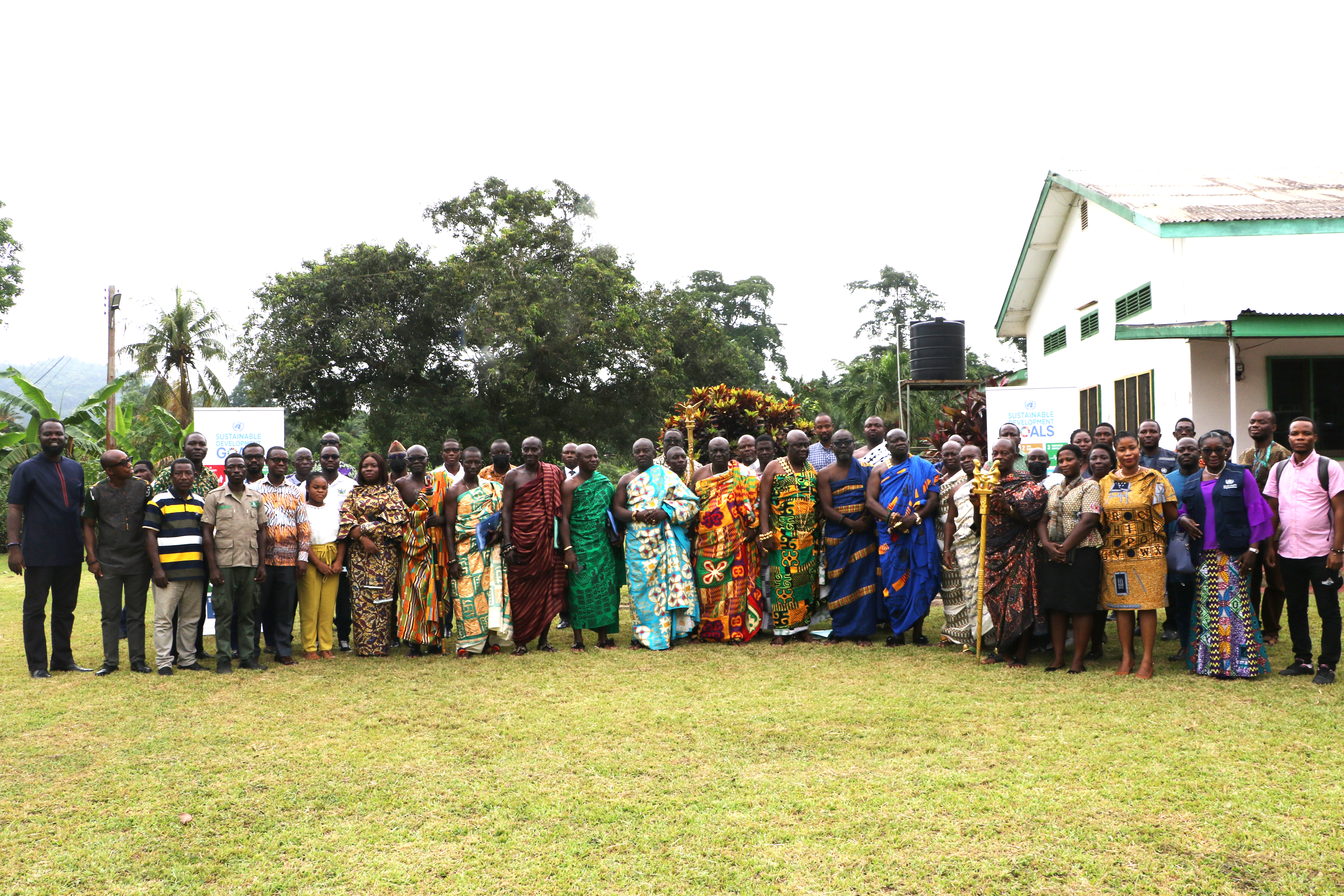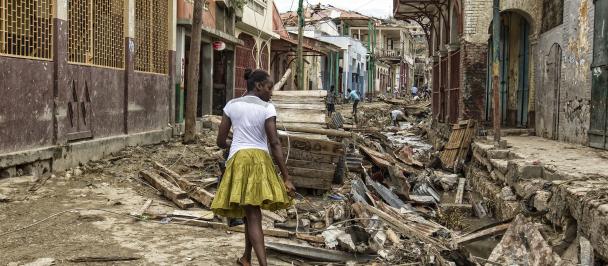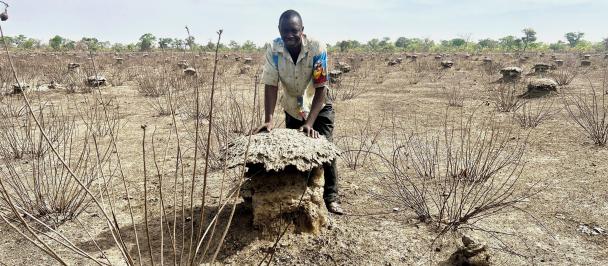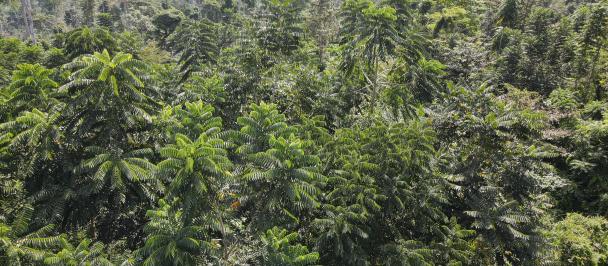According to the World Bank, about 1.3 billion people around the world depend on forests for employment, forest products, and contributions to livelihoods and incomes. Yet, deforestation and forest degradation continue to threaten the global forest cover and the livelihoods of many people.
In Ghana’s Eastern Region, Akyem Abuakwa, which is one of the country’s high forest areas, has experienced some of the highest levels of deforestation. About 30% of the region’s forest loss is attributable to socio-economic activities such as illegal timber logging, mining, expansion in agricultural land use and bad agricultural practices, wildfires, and unsecured land and tree tenure arrangements.
The impact of deforestation and degradation is believed to be closely linked to other human development challenges. To provide sustainable solutions to these interconnected challenges and accelerate the attainment of the Sustainable Development Goals (SDGs), the United Nations in Ghana with funding from the United Nations Trust Fund for Human Security is implementing a project titled: Fostering Reforestation, Environmental Sustainability and Tourism in the Okyeman Area (FOREST Okyeman).
This project is particularly significant as it is adopting human security and community-based approaches towards promoting sustainable livelihoods and wellbeing of the people by strengthening local systems to address critical gaps in environmental, health and education response in Akyem Abuakwa.
It is worth noting that, the FOREST Okyeman is also a clear manifestation of how multi-stakeholder collaboration can be leveraged to co-create solutions for sustainable development challenges, as it is being implemented by Traditional authorities and communities in the area in collaboration with UNDP, UNICEF, WHO, UNEP, UNV and the Okyeman Environment Foundation as well as government, and private sector actors.
The Deputy Resident Representative of UNDP in Ghana, Sukhrob Khoshmukhamedov reiterates the uniqueness of the FOREST Okyeman partnership when he stated at the project’s inception meeting that “the environmental and socio-economic challenges facing communities today are enormous. We must continue to leverage strategic partnerships to empower communities to build their resilience and advance respect for human rights and dignity”.
Sukhrob Khoshmukhamedov, UNDP Deputy Resident Representative in Ghana.
Indeed, the role of traditional authorities in all efforts to protect the forest and build sustainable livelihoods cannot be overemphasized. Therefore, it is significant that the project emphasizes local ownership, with strong support by the traditional authorities in Akyem Abuakwa led by the Okyenhene, His Royal Majesty, Osagyefo Amoatia Oforipanin. As the custodians of the lands, the special role of chiefs will be critical in mobilizing communities to support the project implementation and facilitate sustainability.
As the Asomkahene & Kyebi Kyidom Panin, Barima Fredua Agyeman Okotomin rightly said during the inception meeting of the project, "the forest has a huge potential waiting to be tapped. As communities and traditional leaders, we must work towards protecting it for the long-term socio-economic benefits".
Asomkahene & Kyebi Kyidom Panin, Barima Fredua Agyeman Okotomin at the project inception meeting.
The FOREST Okyeman project will promote considerable investments in reforestation program hinged on sustainable environmental governance and management, ecotourism, livelihoods empowerment, and the promotion of better health and education outcomes.
It is being implemented over 3 years and is expected to benefit over 1.3 million beneficiaries (671,921 women and 505,907 children between the ages of 0-14 years) spanning across 5 districts in the Eastern Region.
As the threats to the environment continue to widen, sustaining livelihoods and the wellbeing of people require actions at all levels. Leveraging the influence of traditional leaders in this agenda as being done in the FOREST Okyeman project is the most effective way to drive communities towards sustainable practices for people and for planet.
A group photo of chiefs and other stakeholders at the inception meeting of FOREST Okyeman project.

 Locations
Locations




